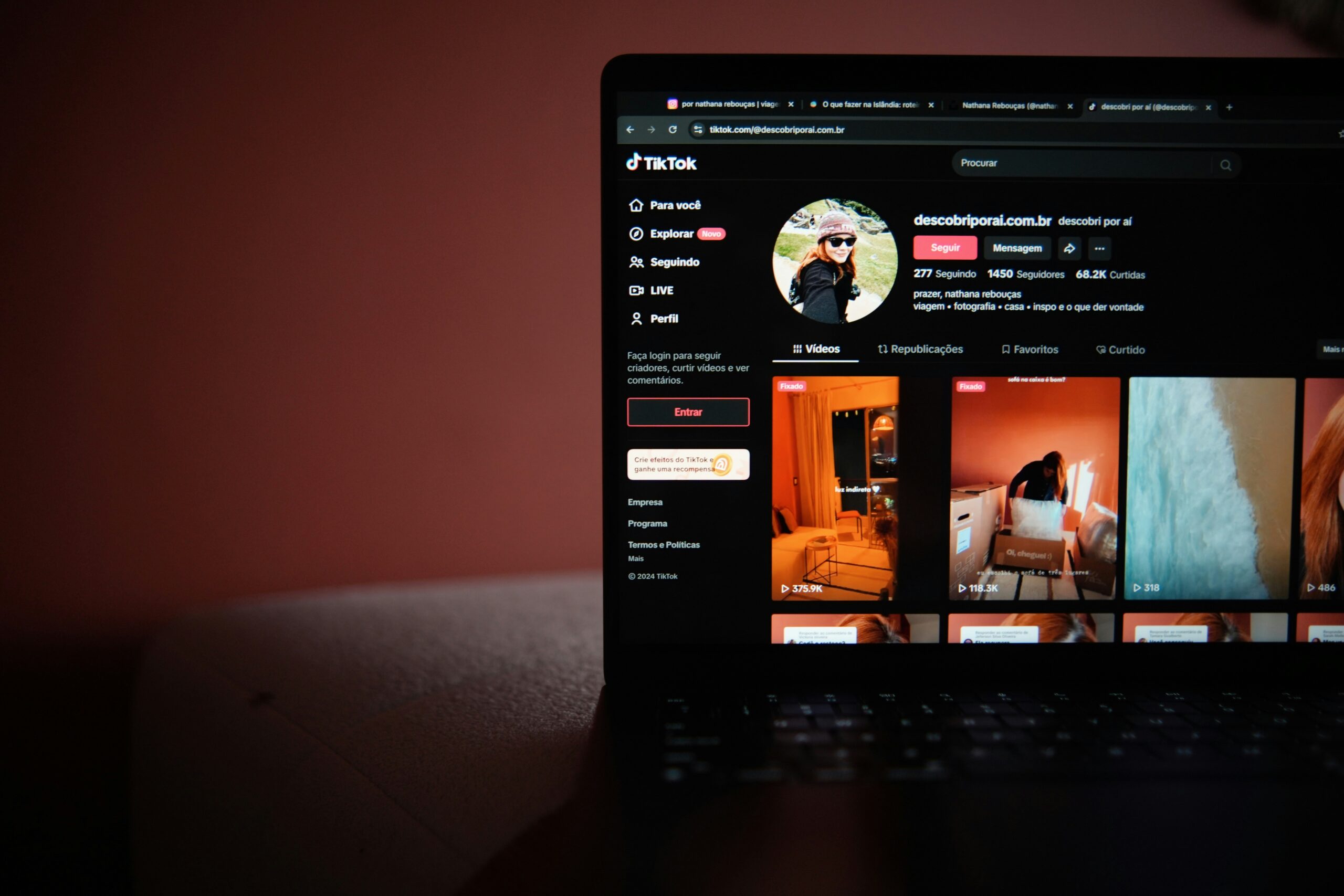
Introduction to Personal Branding
Personal branding is the practice of individuals marketing themselves and their careers as brands. It entails consciously and intentionally creating an image or reputation that aligns with one’s professional goals and values. In today’s competitive job market, where employers and clients are inundated with choices, establishing a robust personal brand is crucial for distinguishing oneself from the crowd. It goes beyond traditional notions of branding; it involves the narrative one conveys about their skills, experiences, and values, thereby shaping public perception.
The significance of personal branding cannot be overstated, particularly for those aspiring to be industry leaders. A strong personal brand fosters credibility and trust, qualities that are indispensable in leadership roles. It allows professionals to efficiently communicate their expertise and authenticity, making them more memorable in their respective fields. For instance, a well-defined personal brand can result in increased visibility within the industry, attracting networking opportunities and potential career advancements that may otherwise remain elusive.
Moreover, personal branding directly impacts career growth by positioning an individual as an authority in their sector. This is increasingly essential in a world where potential employers often gauge candidates based not only on qualifications but also on their online presence and perceived influence. As professionals curate their online identities through social media platforms, blogs, and other channels, they set the stage for how they wish to be seen. Therefore, mastering personal branding is not merely an option; it is a necessity for anyone looking to excel in their career and solidify their status as an industry leader.
Understanding Your Unique Value Proposition
Identifying your Unique Value Proposition (UVP) is a crucial step in establishing a personal brand that resonates with your target audience. Your UVP reflects the unique benefits and values you bring to your industry, distinguishing you from your peers. To effectively articulate your UVP, engage in a thorough self-assessment that examines your skills, strengths, experiences, and the distinctive qualities that define you.
Begin by conducting an honest evaluation of your professional background. Reflect on experiences, both positive and challenging, that have shaped your career. What specialized skills have you acquired? What accolades or achievements highlight your expertise? Documenting these facets will help you pinpoint your most valuable attributes. In addition, consider seeking feedback from peers, mentors, or colleagues who can provide insights into how they perceive your contributions and strengths. Peer evaluations are a vital component of understanding how you are viewed within your industry.
Next, strategize on how to distinguish yourself from others in your field. This may involve identifying gaps in the market that align with your strengths or addressing challenges that professionals in your industry face. Pinpoint specific problems you can solve or additional value you can offer. By determining the unique intersection of your expertise and market needs, you create a UVP that resonates with potential clients or employers.
Your UVP should not only convey your professional competency but also encapsulate your values and mission. Consider how you want your brand to be perceived and what messages you wish to communicate. This clarity will enhance your ability to connect authentically with your audience, positioning you as an industry leader who can deliver distinct value. With a well-defined UVP, you empower yourself to effectively market your personal brand while fostering meaningful connections in your professional landscape.
Building an Online Presence
In today’s digital world, establishing a robust online presence is essential for individuals aiming to position themselves as industry leaders. The first step in this process involves creating a professional website or portfolio that serves as a central hub for your personal brand. This digital platform should include comprehensive information about your skills, experiences, and accomplishments tailored to reflect your expert status within your field. A well-designed website not only enhances credibility but also allows for easy sharing of your work and ideas.
Social media platforms play a pivotal role in amplifying your online visibility. Among these, LinkedIn and Twitter are particularly effective for professional networking and engagement. To optimize your LinkedIn profile, ensure that your headline clearly communicates your expertise and the value you bring to your industry. Utilizing a professional photograph and crafting a well-written summary will further enhance your profile. Consistently sharing relevant content and engaging with others in your industry will help you establish connections and attract a following.
On Twitter, it is critical to curate and share content that resonates with your target audience. Engaging actively with industry leaders, participating in relevant discussions, and using hashtags strategically can expand your reach significantly. Additionally, regular updates about your work, thoughts on industry trends, and insights can position you as a knowledgeable resource. Utilizing these platforms effectively allows you to engage in meaningful conversations, attracting followers who are genuinely interested in your content.
Creating high-quality, engaging content is central to building your online presence. This could include blog posts, articles, videos, or infographics that provide value to your audience. Regularly updating your social media profiles and your website with fresh content fosters engagement and keeps your audience informed about your latest endeavors.
Content Creation as a Branding Tool
In today’s digital age, content creation serves as a crucial element in developing a strong personal brand. Through various forms of content—ranging from blogs and videos to podcasts—individuals can effectively convey their expertise and unique perspectives in their respective industries. This multifaceted approach not only engages the audience but also builds a connection that fosters trust and credibility. The types of content that typically resonate most with audiences include informative articles that address pain points, engaging videos that demonstrate skills, and insightful podcasts featuring expert discussions. Each medium offers distinct advantages, allowing the content creator to cater to different preferences within their audience.
Consistency is paramount in content creation. By establishing a regular posting schedule, individuals signal to their audience that they are reliable and committed to delivering value. This not only promotes stronger engagement but also enhances the brand’s visibility in the saturated digital landscape. Posting high-quality content consistently not only helps in attracting an audience but also improves search engine optimization (SEO). Well-researched and thoughtfully crafted content can substantially boost online visibility, allowing personal brands to reach a broader audience organically. This strategic use of SEO tactics, such as incorporating relevant keywords, optimizing titles, and utilizing meta descriptions, can propel content higher in search engine results, further solidifying an individual’s status as an industry authority.
Moreover, the production of high-quality content positions individuals as thought leaders within their field. By sharing insights, opinions, and expertise, creators demonstrate their knowledge and experience, naturally drawing attention from peers and potential clients alike. This ongoing engagement not only amplifies visibility but also encourages collaboration opportunities and networking, essential components for anyone looking to enhance their personal brand.
Networking and Building Relationships
Networking is a fundamental aspect of personal branding, playing a crucial role in establishing oneself as an industry leader. Building solid relationships within your field not only increases visibility but also opens doors to new opportunities. Effectively engaging with peers, mentors, and influencers is essential in amplifying your presence and credibility. One of the pivotal strategies for enhancing personal branding is attending industry-related events such as conferences, trade shows, and seminars. These gatherings provide invaluable opportunities to meet like-minded individuals and exchange ideas that can significantly benefit one’s career.
While in-person interactions are vital, leveraging online platforms is equally important. Social media, particularly LinkedIn, serves as a powerful tool for professionals looking to expand their networks. Engaging in relevant conversations, sharing insightful content, and connecting with industry influencers can foster relationships that lead to collaborations and mentorships. It is imperative to create a compelling profile that reflects your personal brand and showcases your expertise. By regularly participating in discussions, you can further position yourself as an authority in your field.
Another effective tactic is to engage in online forums and groups related to your industry. These platforms enable meaningful dialogues, allowing you to connect with professionals who share similar interests or challenges. Actively contributing valuable insights or asking pertinent questions can help build trust and rapport within the community. Such interactions not only enhance your knowledge but also expand your visibility among peers and industry leaders.
Ultimately, consistent networking and relationship-building efforts will significantly contribute to personal branding. By establishing genuine connections and actively participating in both online and offline opportunities, you can effectively assert your status as an industry leader. Remember, the relationships you cultivate today can have lasting impacts on your career trajectory.
Leveraging Social Proof and Testimonials
In the realm of personal branding, social proof is an invaluable asset that can significantly enhance an individual’s credibility and authority within their industry. Social proof refers to the psychological phenomenon wherein people look to the actions and opinions of others to guide their own behaviors and beliefs. By effectively utilizing testimonials and endorsements from colleagues, clients, and industry peers, individuals can cultivate a strong personal brand that resonates with potential audiences.
Gathering testimonials is essential in establishing social proof. To obtain these valuable endorsements, individuals should proactively seek feedback from clients and colleagues. During or after a project, it is beneficial to request clients to provide written or verbal testimonials that highlight positive experiences and successful outcomes. It is also advantageous to create structured feedback forms that focus on specific aspects of the service or product offered. This targeted approach often yields more detailed and impactful endorsements.
Showcasing testimonials effectively is equally important. It is advisable to prominently display these endorsements on personal websites, professional social media profiles, and marketing materials. Incorporating quotes and images of endorsers can add personal touch and authenticity. In addition to traditional testimonials, presenting case studies and success stories can further enhance credibility. Case studies allow individuals to narrate a compelling story that outlines the challenges faced, the solutions provided, and the successful outcomes achieved. This narrative format not only illustrates expertise but also serves as a relatable experience for potential clients or followers.
By strategically gathering and showcasing social proof through testimonials and success stories, individuals can bolster their personal branding efforts, create trust, and position themselves as credible leaders in their respective fields.
Staying Authentic and True to Yourself
In today’s competitive landscape, personal branding plays a crucial role in establishing oneself as an industry leader. Central to effective personal branding is authenticity, which allows individuals to connect with their audience on a deeper level. When people present themselves genuinely, they resonate with others in a way that creates stronger, more meaningful connections. Authenticity serves as the foundation upon which a trustworthy personal brand is built.
Embracing one’s true self not only enhances the way individuals are perceived but also fosters a sense of loyalty among followers. Audiences are increasingly drawn to those who exhibit transparency and sincerity, as these qualities signify a lack of pretense. When potential clients, partners, or collaborators identify with the authentic aspects of a brand, it becomes easier for them to engage and establish lasting relationships. Through this genuine representation, the opportunity for valuable networking and collaboration is significantly increased.
Being true to oneself requires courage and self-awareness, as it often involves expressing one’s values, beliefs, and passions openly. This can lead to challenges, particularly when individuals fear that their uniqueness may not resonate with the mainstream audience. However, it is essential to recognize that embracing individuality typically results in a more loyal following, as like-minded individuals are attracted to authenticity. These connections can ultimately lead to professional growth and success, reinforcing the idea that embracing one’s true identity is far more advantageous than conforming to an ideal.
Furthermore, the long-term benefits of staying authentic are manifold. A well-defined personal brand that reflects one’s individuality becomes memorable and distinguishable in the marketplace, which is vital for long-term success. The key takeaway is that embracing authenticity is an invaluable strategy in personal branding, leading to a more solidified and respected reputation in any chosen industry.
Tracking Your Progress and Adapting Strategies
In the digital age, establishing a personal brand as an industry leader requires ongoing efforts to evaluate and modify one’s strategies. Tracking your personal branding initiatives is essential to understanding what resonates with your audience and how effectively you are conveying your message. There are various metrics and tools available for measuring your online presence, audience engagement, and the overall perception of your brand. Utilizing these metrics can provide valuable insights into your branding efforts.
One of the primary metrics you should monitor is engagement rates across your social media platforms. Engagement measures how actively your audience interacts with your content, through likes, shares, comments, and overall shares. Tools such as Google Analytics can also help you assess your website traffic, identifying sources of visits and the behavior of users on your site. Additionally, tracking growth in follower counts and audience demographics can give you a clearer picture of who is engaging with your brand.
Aside from quantitative metrics, qualitative feedback is equally important. Conducting surveys or seeking out direct feedback from your audience can uncover perceptions about your brand. This feedback enables you to discern which aspects of your branding are effective and which require modification. By regularly assessing both quantitative metrics and qualitative feedback, you can adapt your branding strategies to better align with the expectations and preferences of your audience.
Continual assessment not only aids in improving brand perception but also promotes sustained growth in your personal branding efforts. By analyzing the data and refining your strategies accordingly, you pave the way for a robust personal brand that can thrive in a competitive landscape. Emphasizing an adaptable and responsive approach will ultimately position you as a leader within your industry, marking the continuous evolution of your personal brand.
Conclusion and Next Steps
Establishing a strong personal brand is a vital component for anyone looking to position themselves as an industry leader. Throughout this post, we have discussed the importance of identifying your unique value proposition, understanding your target audience, and consistently sharing your expertise through various platforms. By focusing on these aspects, you can cultivate a personal brand that resonates with your audience and aligns with your professional goals.
To embark on your personal branding journey, begin by conducting a self-assessment. Identify your strengths, values, and the message you wish to convey in your field. This foundational step enables you to create a coherent narrative that captures your brand essence. Networking is equally critical—connect with industry peers and engage in conversations that can elevate your profile. Participating in discussions, both online and offline, can significantly enhance your visibility as an authority in your domain.
Moreover, leverage social media platforms to disseminate your insights and knowledge. Craft thoughtful content that showcases your expertise while encouraging interaction with your audience. Engaging with followers fosters a community around your brand and amplifies your reach. Regularly updating your portfolio or personal website with your achievements and projects also contributes to a comprehensive representation of your professional journey.
For those looking to explore more about personal branding, consider utilizing resources such as books, online courses, and webinars that delve deeply into the subject. Websites like LinkedIn Learning and Coursera offer valuable tools to help navigate personal branding’s intricacies. Remember, building a robust personal brand takes time, dedication, and persistence. Start taking actionable steps today toward establishing yourself as an industry leader, and watch your professional presence grow.












